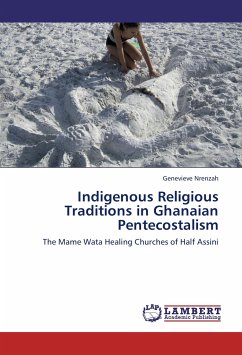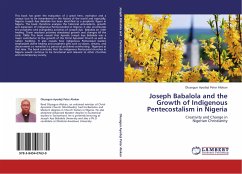Goddesses in African religions are spirits that affect humans and demand reverence from them. They are also embodiments of ideas that African people have about women, their powers and their roles in society. This study focused on Mame Wata, a goddess in Half Assini, an Nzema-speaking coastal community in western Ghana. It sought to resolve a paradox, that is, the fact that, the goddess is at the center of a Pentecostalist tradition even though traditional Pentecostalism in Ghana views her as an agent of the devil. The study involved fieldwork in this community of the goddess s female worshippers led by Agyimah, a charismatic man, and an agent of the goddess. The study interpreted the goddess as a post-colonial invented symbol personifying both pre-colonial and emerging ideas about female power. Findings from the study also show that through Mame Wata the followers celebrate the spirituality of the female.
Bitte wählen Sie Ihr Anliegen aus.
Rechnungen
Retourenschein anfordern
Bestellstatus
Storno








